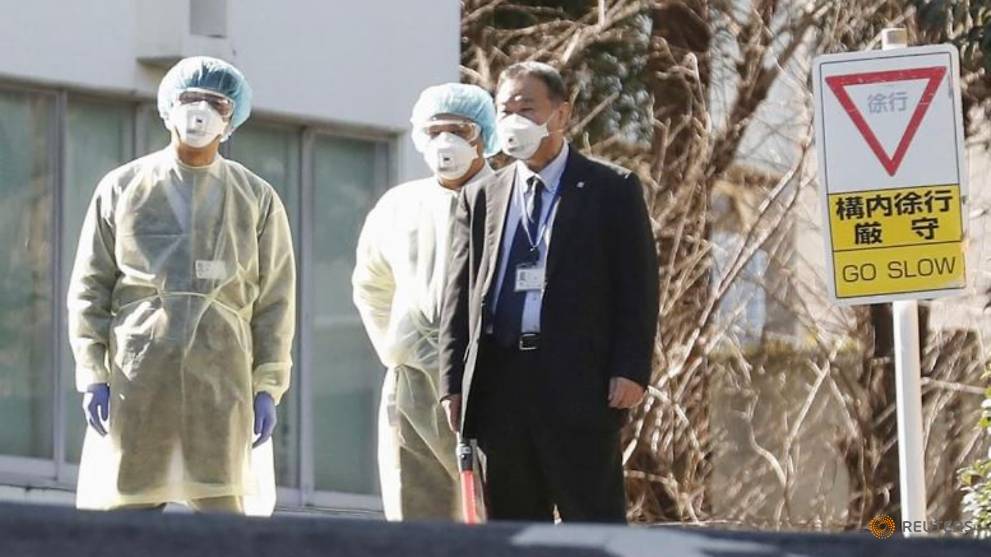
Japan speeds up new Wuhan coronavirus measures as more evacuees arrive
TOKYO: Japan said on Friday (Jan 31) that it would bring forward the date that the coronavirus will become a "designated infectious disease" to Saturday from Feb 7, as a third chartered flight carrying Japanese citizens arrived from Wuhan.
The measures were due to come into effect from Feb 7, but will now be moved up to Feb 1, Shinzo Abe told parliament.
"With this measure, we will refuse infected individuals entry to Japan," Abe said.
"We will swiftly study ways to strengthen immigration control for cases where infection is suspected but not confirmed," he added.
Japan now has 14 confirmed cases of the new coronavirus, an epidemic that is believed to have originated in the Chinese city of Wuhan. Two of those returned on the first chartered flight and had shown no symptoms.
READ: 3 Japanese evacuated from Wuhan have coronavirus: Health minister
As worries grew in Japan over a further spread of the disease, the government said it would refuse entry to anyone infected and consider stricter screening for suspected cases, Chief Cabinet Secretary Yoshihide Suga said.
Suga also told a news conference that the government would consider paying for the chartered flights out of Wuhan, as opposition lawmakers criticised its policy of charging passengers 80,000 yen (US$730) each."We decided on these changes in view of the World Health Organization's (WHO) declaration of a global emergency," Suga said.
READ: WHO declares international emergency over Wuhan virus
The government classified the new coronavirus as a designated infectious disease on Tuesday, but the designation was only set to take effect on Feb 7 after ordinances are issued, in line with regulations. The designation allows compulsory hospitalisation and the use of public funds for treatment, among other measures.The third flight out of Wuhan, which arrived on Friday morning, brings the total number of expatriated nationals to 565, Suga said.
Unlike other countries, which are opting to isolate returning citizens for between 72 hours and two weeks, Japan has asked evacuees to "self-quarantine".
Japanese officials say there is no legal basis for them to forcibly isolate people who have not tested positive for the virus - and that will not change with the implementation of the new rules from Saturday.
There was also outrage after it emerged that two people on the first evacuation flight from Wuhan initially refused to be tested for the virus, and were allowed to return home after being advised to avoid public transport and monitor their health.
The government has said it cannot force people to take the test, and on Thursday night health ministry officials said the two individuals had now changed their minds and would take the test.
Of the 206 people who arrived on a first flight on Wednesday, 12 have been hospitalised, with all but two of the other passengers staying at a government-designated hotel in Chiba outside Tokyo.
A second evacuation flight carrying 210 people arrived on Thursday, with 26 passengers hospitalised after checks on board and at a health facility after landing.
The remaining passengers are staying at government-designated accommodation, and all the passengers on the second flight were tested for the new virus, officials said.
BOOKMARK THIS: Our comprehensive coverage on the Wuhan coronavirus and its developments
Download our app or subscribe to our Telegram channel for the latest updates on the Wuhan virus outbreak: https://cna.asia/telegram